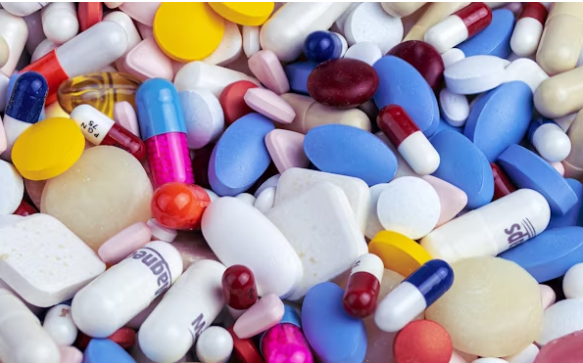How to Stay Hydrated: The Importance of Water for Health
Water is often referred to as the essence of life, and for good reason. As one of the most vital components of our bodies, it plays a crucial role in maintaining overall health. From regulating body temperature to aiding digestion and supporting cognitive function, staying hydrated is essential for optimal health. In this guide, we will explore the importance of hydration, how much water you should be drinking, the benefits of staying hydrated, and practical tips for ensuring you meet your hydration needs.
The Importance of Hydration
Hydration refers to the process of providing the body with adequate fluids to function effectively. Water makes up about 60% of the human body and is essential for numerous physiological processes, including:
Regulating Body Temperature: Water helps dissipate heat through perspiration, maintaining a stable body temperature during exercise or in hot environments.
Aiding Digestion: Sufficient water intake is crucial for digestion, as it helps break down food and promotes nutrient absorption. It also prevents constipation by softening stools.
Supporting Cognitive Function: Dehydration can impair cognitive function, leading to difficulties in concentration, mood changes, and fatigue. Staying hydrated helps maintain focus and mental clarity.
Maintaining Joint Health: Water lubricates joints, reducing friction and discomfort. Proper hydration can help prevent joint pain and stiffness.
Facilitating Nutrient Transport: Water is a key component of blood, which transports oxygen and essential nutrients to cells and removes waste products.
Supporting Kidney Function: The kidneys rely on adequate water intake to filter waste from the blood and excrete it through urine. Proper hydration helps prevent kidney stones and urinary tract infections.
How Much Water Do You Need?
The amount of water an individual needs can vary based on several factors, including age, sex, activity level, and climate. However, general guidelines recommend:
- Men: Approximately 3.7 liters (or about 13 cups) of total water intake per day, including all beverages and food sources.
- Women: Approximately 2.7 liters (or about 9 cups) of total water intake per day.
These recommendations include all fluids consumed, not just plain water. It's also important to listen to your body's signals for thirst, which can indicate when you need to hydrate.
Factors Influencing Water Needs
Activity Level: Individuals who exercise regularly or engage in strenuous physical activity may require additional water to replace fluids lost through sweat.
Climate: Hot or humid weather increases sweating, necessitating higher fluid intake to stay hydrated.
Health Status: Certain medical conditions, such as fever, diarrhea, or vomiting, can lead to increased fluid loss. Pregnant or breastfeeding women also have increased hydration needs.
Diet: Foods with high water content, such as fruits and vegetables, can contribute to overall hydration. Foods like watermelon, cucumber, and oranges are excellent choices.
Benefits of Staying Hydrated
Enhanced Physical Performance: Proper hydration can improve endurance and reduce fatigue during physical activities. Even mild dehydration can negatively impact performance and lead to muscle cramps and heat exhaustion.
Improved Digestion: Adequate water intake promotes efficient digestion and prevents constipation. Drinking water before meals can also help control appetite and aid in weight management.
Clearer Skin: Staying hydrated helps maintain skin elasticity and hydration, reducing the appearance of dryness and wrinkles. It can also assist in flushing out toxins that may contribute to skin issues.
Boosted Energy Levels: Dehydration can lead to feelings of fatigue and sluggishness. Drinking enough water can help maintain energy levels and combat fatigue.
Enhanced Mood and Cognitive Function: Adequate hydration supports mental clarity and focus. Studies have shown that even mild dehydration can negatively affect mood, leading to increased feelings of anxiety and irritability.
Tips for Staying Hydrated
Carry a Water Bottle: Keeping a reusable water bottle with you throughout the day can serve as a reminder to drink water regularly. Aim to refill it several times a day.
Set Reminders: Use your phone or a hydration app to set reminders for regular water intake. This can be particularly helpful if you often forget to drink water during busy days.
Infuse Your Water: If plain water feels boring, infuse it with fresh fruits, herbs, or vegetables for added flavor. Popular options include cucumber, lemon, mint, or berries.
Eat Water-Rich Foods: Incorporate foods with high water content into your diet, such as cucumbers, tomatoes, oranges, and leafy greens.
Drink Before You Feel Thirsty: Thirst is an indicator that your body is already experiencing dehydration. Make it a habit to drink water regularly, even if you don’t feel thirsty.
Monitor Urine Color: A simple way to check hydration levels is by observing the color of your urine. Light yellow urine typically indicates proper hydration, while dark yellow or amber suggests dehydration.
Limit Diuretics: Be mindful of beverages that can lead to increased fluid loss, such as caffeine and alcohol. If you consume these, be sure to drink extra water to compensate.
Hydrate During Exercise: Drink water before, during, and after exercise to replenish fluids lost through sweat. For intense workouts lasting longer than an hour, consider electrolyte-replenishing drinks.
Create a Routine: Establish a routine around drinking water, such as drinking a glass of water after each bathroom break, meal, or before each task.
Stay Informed: Educate yourself about the importance of hydration and the signs of dehydration. Knowledge is a powerful motivator for maintaining good hydration habits.
Conclusion
Staying hydrated is essential for maintaining optimal health and well-being. Understanding the importance of water, knowing how much you need, and incorporating practical tips for hydration can help you achieve better physical and mental performance. By prioritizing your hydration needs, you can improve your overall quality of life and support your body’s vital functions. Remember, hydration is not just about drinking water; it’s about creating a healthy lifestyle that prioritizes wellness and balance. So, grab that water bottle and make hydration a priority every day!


No comments
if you have any doubts,let me know